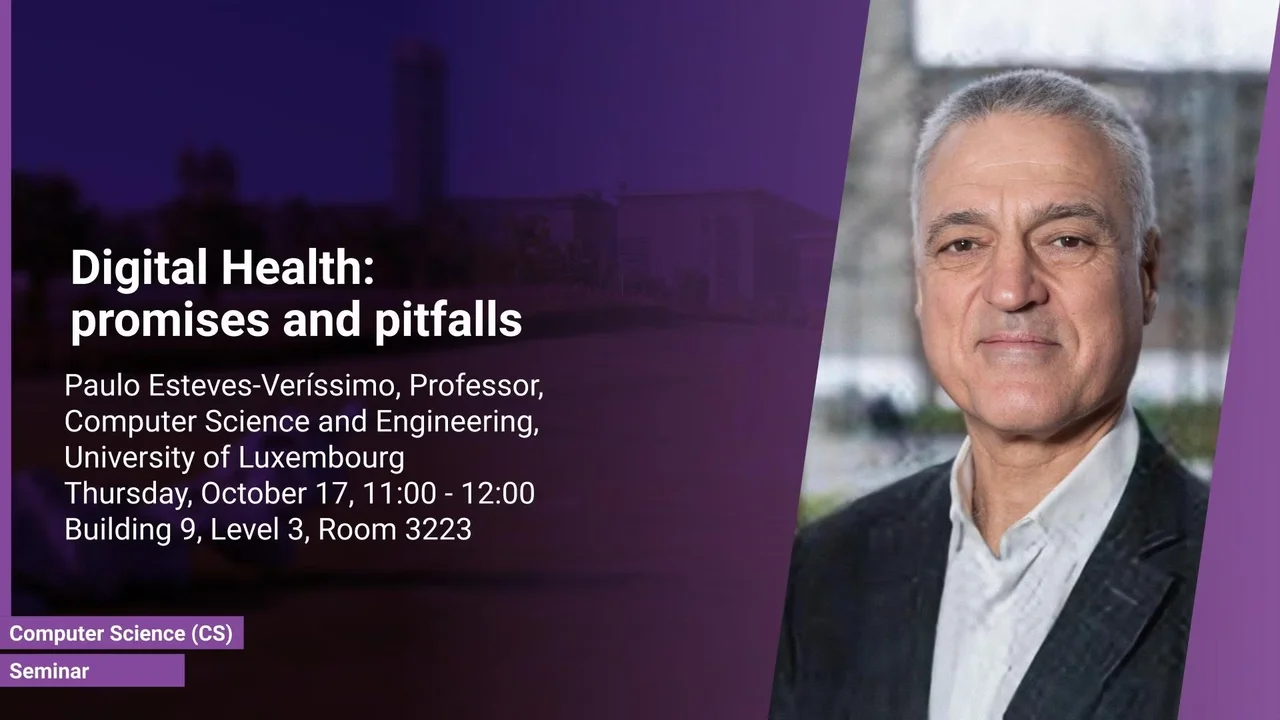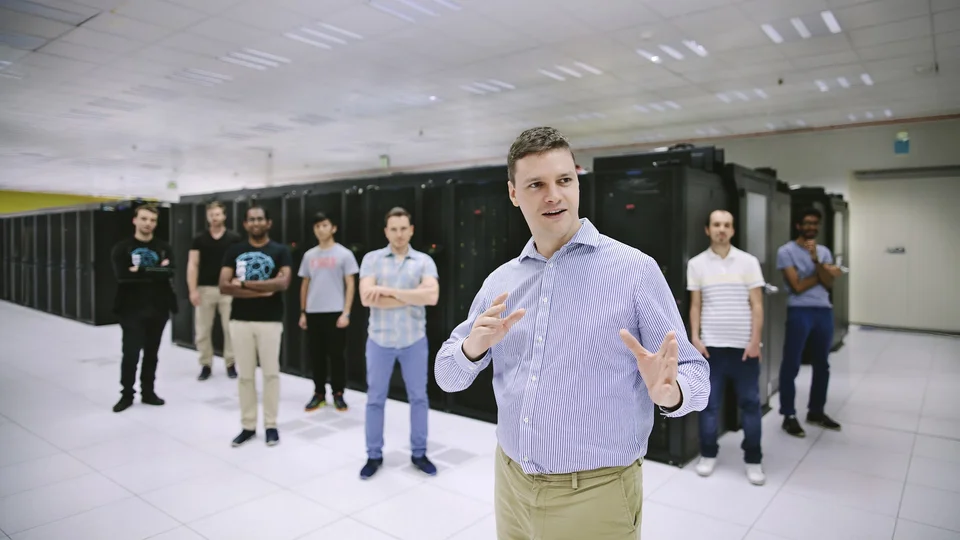
Digital Health: promises and pitfalls
This talk will try to clarify some misconceptions about what digital health (DH) is, and what it should not be.
Overview
Abstract
This talk will try to clarify some misconceptions about what digital health (DH) is, and what it should not be. There is a widespread belief that DH, health powered by ICT, is simply about leveraging and extending the availability and use, by the biomedical sector, of more powerful or sophisticated computers, files, programs, or devices.
An alternative view is that the most disruptive applications of DH are yet to be born, and their advent will come from ecosystems capable of managing: interdisciplinarity, priorities, and research-to-exploitation path. Furthermore, it argues that a simplistic vision and promise of DH as mere extended and/or more sophisticated medical information systems will bring in a threat surface that we are not ready to encompass with the current ICT industry state of the art, and the risk of failures.
In consequence, striking the right priorities, mission, and balance between key disciplines becomes a key issue. In the talk, I suggest a global Digital Health strategy deriving from the thoughts above, based on three pillars: state of the art research in computer and data science and engineering; experimentation of results on realistic medical and biomedical testbed federations; translation to exploitation by companies and incubators. My thesis is that in the future of digital health, countries will be either leaders or followers, but the first category is likely to emerge from strategies like above.
Illustrating the hardness of devising the right paradigms to implement DH, in the last part of the talk I will illustrate scholarly results of some state-of-the-art research in my Lab CritiX, which have already led to a path of potential industrial exploitation, in a very critical area where the mere use of current technology would lead to considerable risks: ensuring the sharing and use of genomic information without endangering the privacy of its owners.
Brief Biography
Paulo Esteves-Veríssimo is a Professor and FNR PEARL Chair at the University of Luxembourg (UL), and head of the CritiX research group at UL's SnT Centre (http://wwwen.uni.lu/snt). He is an adjunct Professor of the ECE Dept. of CMU (USA). Veríssimo is a Fellow of IEEE and of ACM. He is past Chair of the IFIP WG 10.4 on Dependable Computing and Fault-Tolerance and past vice-Chair of the Steering Committee of the DSN conference. He is also an associate editor of the IEEE Transactions on Emerging Topics in Computing.
Esteves-Veríssimo is a member of the Scientific Board of the Portuguese National Cybersecurity Center (CNCS-PT) and has an extensive record as a project team leader in several EU projects, and of collaboration with large corporations, institutions, and public administration bodies, in projects, audits and consulting in resilience, dependability, and cybersecurity.
He is interested in resilient, secure and dependable distributed architectures, middleware and algorithms for the resilience of large-scale systems and critical infrastructures, privacy, and integrity of biomedical and blockchain data, security and safety of real-time networked embedded systems. He is the author of over 200 peer-refereed publications and co-author of 5 books.
